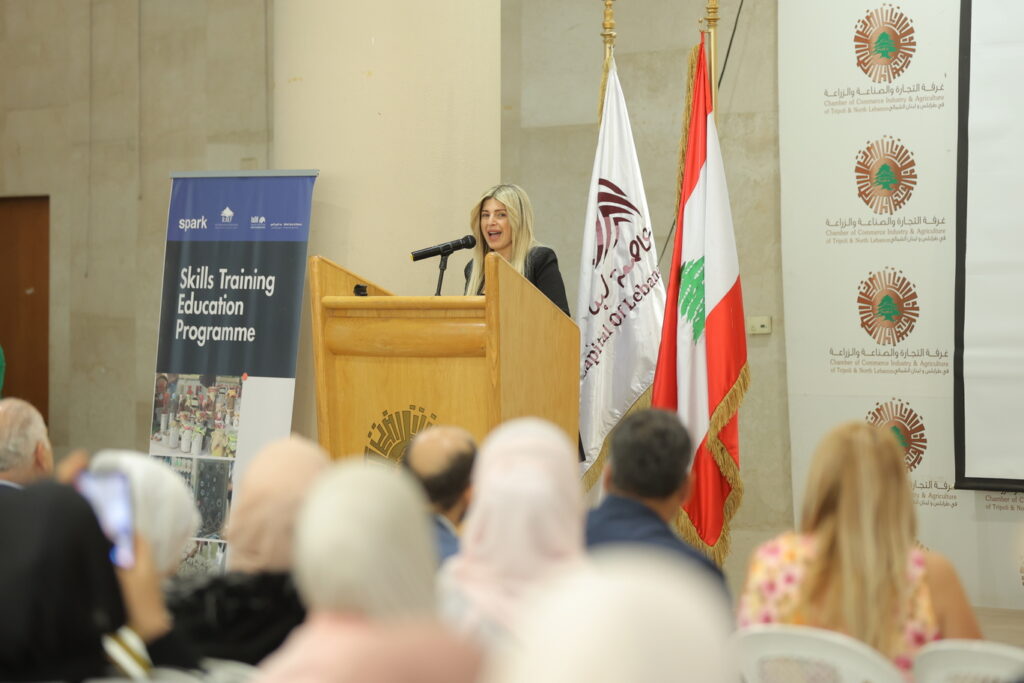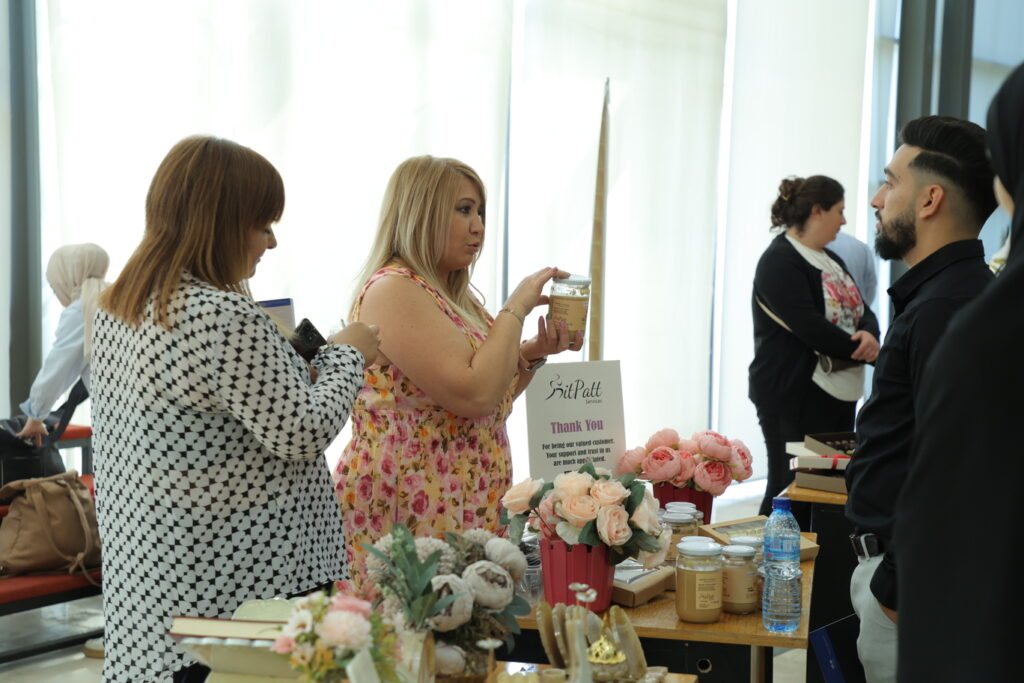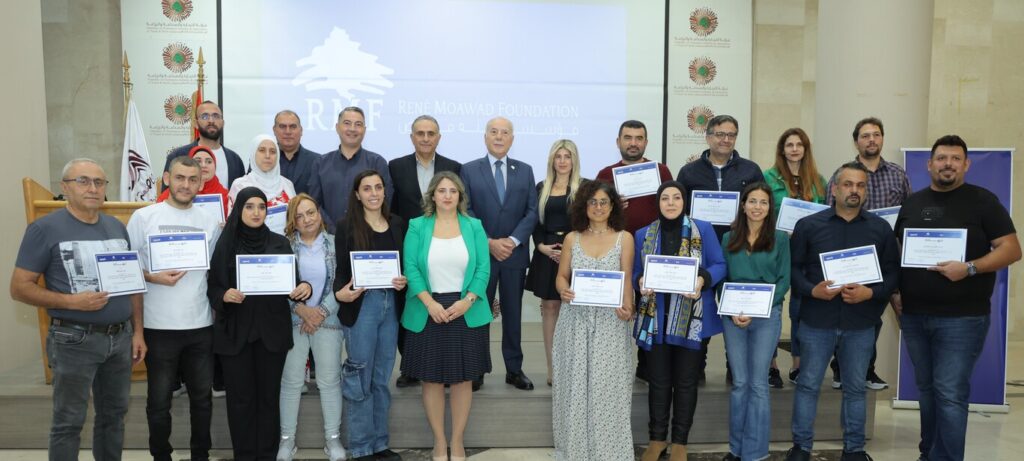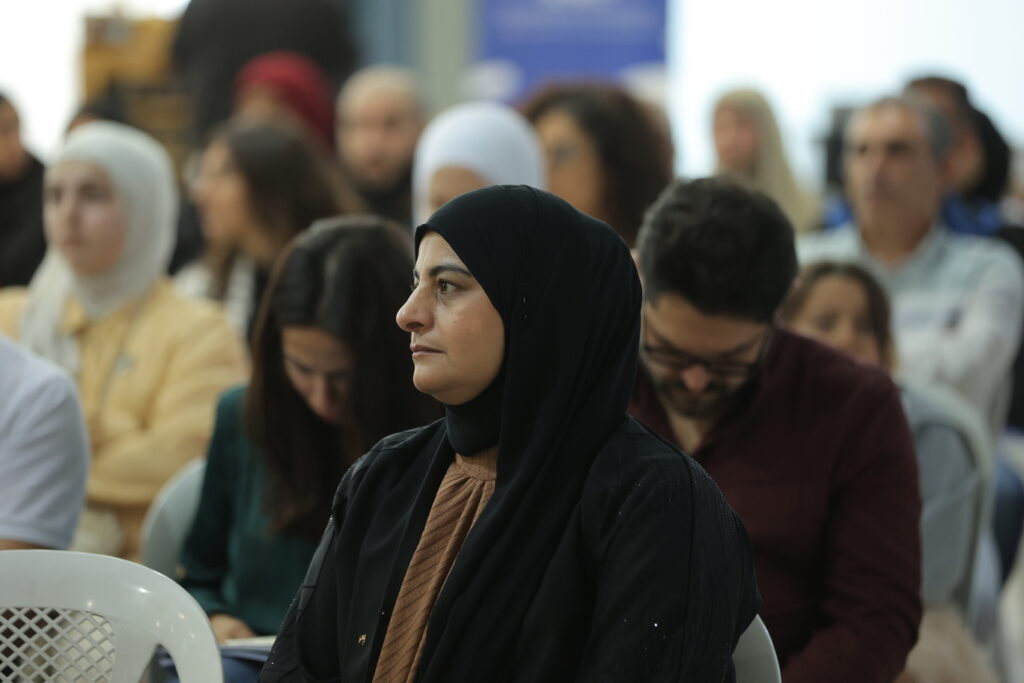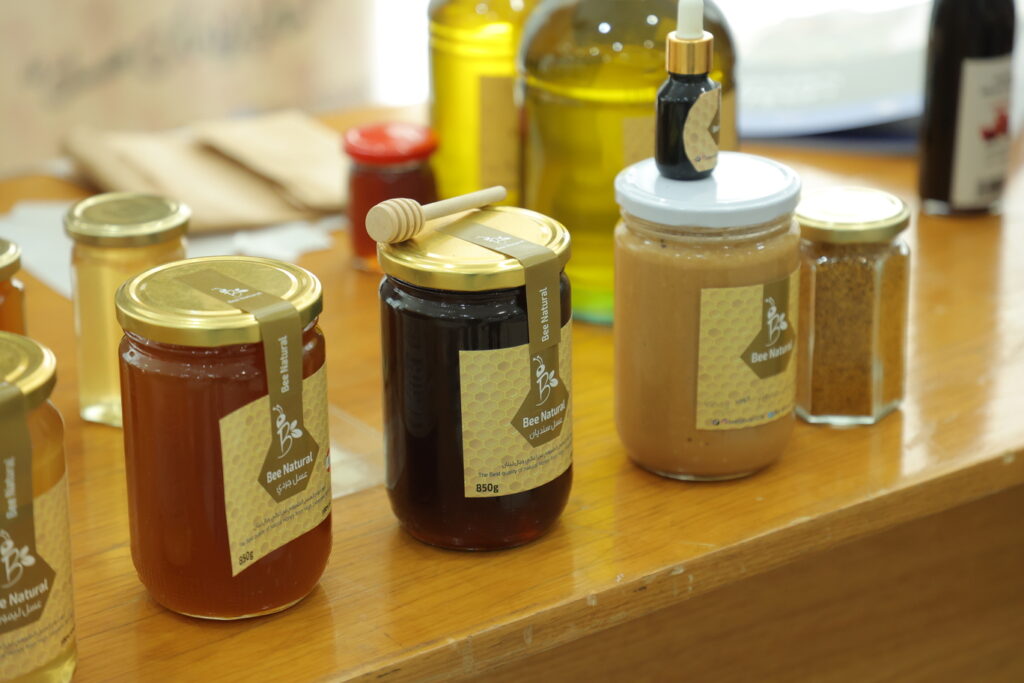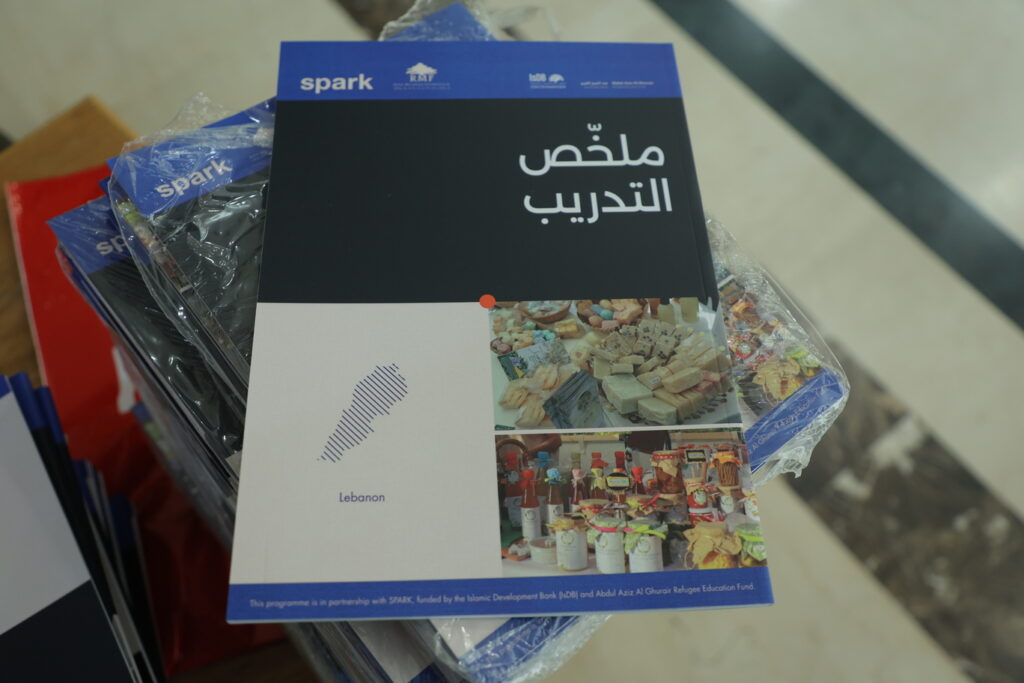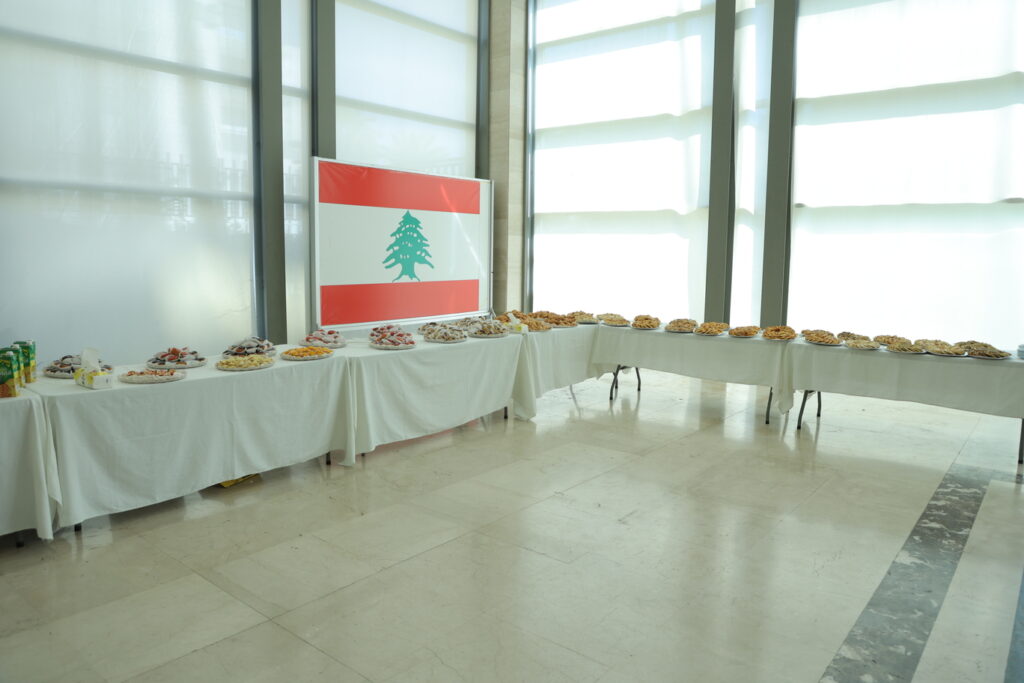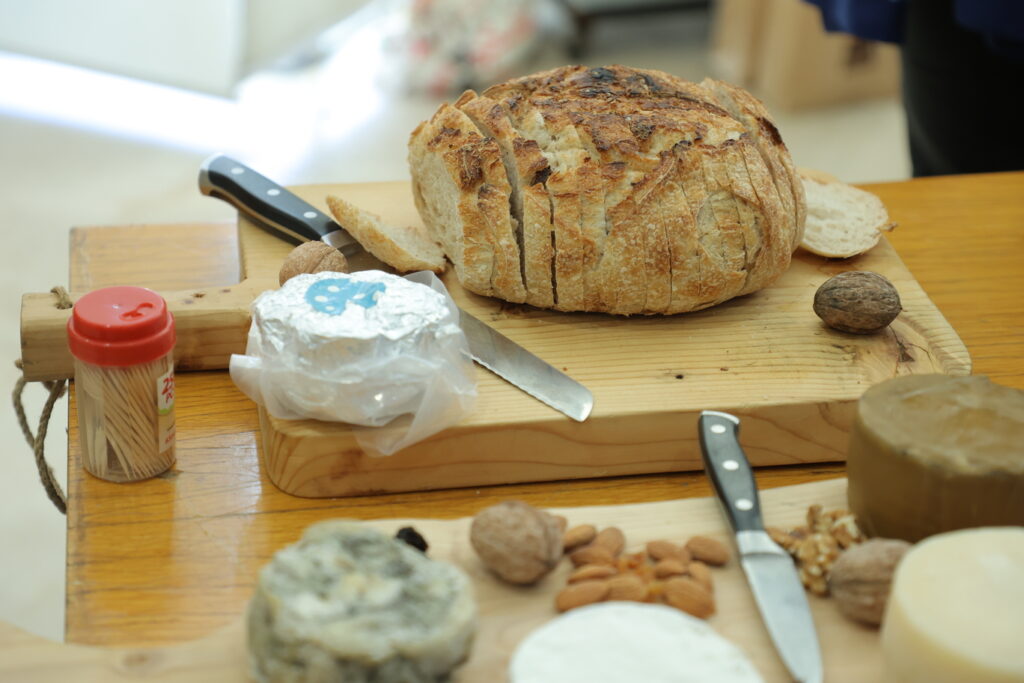Building Business Resilience in Lebanon

In a region where unemployment rates are among the highest in the Middle East, opportunities for quality jobs are limited, and economic resilience is constantly tested. For Lebanon, struggling with layered crises, the Skills Training Education Programme (STEP) has become a vital initiative, aiming to provide a lifeline for entrepreneurs and job seekers. Launched by the Islamic Development Bank, the Abdul Aziz Al Ghurair Refugee Education Fund, and SPARK, this two-year initiative works to equip entrepreneurs with essential skills, modernise educational approaches, and connect participants to sustainable employment opportunities.
Implemented in Lebanon by the René Mouawad Foundation, STEP’s interventions are tailored to address the unique challenges faced by local communities. “The importance of this project is highlighted given the crises that Lebanon is enduring socially and economically,” explains Dr. Josette Moawad, the foundation’s project manager.
STEP’s impact begins with understanding. In Lebanon’s underserved T5 region, the programme assessed 122 micro, small, and medium enterprises (MSMEs) to identify their specific needs. From there, it delivered targeted training on digital marketing, accounting, and finance—skills critical for navigating the country’s economic instability. SPARK, through the STEP programme worked with the Renee Moawad Foundation and BIAT to identify the specific needs of 122 micro, small, and medium enterprises (MSMEs). “We were able to assess the needs and identify the challenges for 122 MSMEs in the T5 region,” explains Nadeen Elbakht, Business Development and International Relations at BIAT.
Opening doors to markets, finance and knowledge
The impact of STEP extends beyond education. As Nadeen from BIAT notes, the programme also helped participants access new markets and financial resources. “We were able to link participants with financial institutions and helped them access markets,” she says, underlining the holistic approach of the initiative.
For women like Mayssa Al Ossman, based in Tripoli, who initially started working to support her family, these interventions have been incredibly life changing. “Initially, I started working to support myself and my family. The same goes for the other women in the programme—working to support their families. As life has become very difficult, everything requires greater efforts,” she explains. Additionally, Mayssa shared, “I learned how to calculate my profits, as there were materials I wasn’t accounting for before. This helped us improve our work and become stronger and more confident in what we are doing.”
These workshops, which cover essential topics such as digital marketing, accounting, and finance, are tailored to meet the specific needs of entrepreneurs. Beyond imparting technical skills, they instill confidence and resilience—traits vital for navigating the complexities of running a business in Lebanon’s volatile economy.
Empowering inclusive growth
STEP’s commitment to inclusivity sets it apart as a significant driver of positive change in Lebanon. Recognising the unique barriers faced by underrepresented groups, including women, men, and people with disabilities, the programme actively integrates them into its initiatives, creating opportunities that ripple through communities and contribute to building a more equitable economy.
“Thanks to this project and similar initiatives, along with the support of donors, we are ensuring the economy remains vibrant. Small and medium-sized enterprises will be able to face these crises no matter the circumstance,” emphasises Dr. Josette Moawad, Project Manager at the Renee Moawad Foundation. This focus on inclusivity ensures that STEP’s impact is not limited to addressing immediate business challenges but also extends to fostering long-term economic equity, even in times of adversity.
By combining education, market access, and financial support, STEP’s holistic approach demonstrates how coordinated efforts can spark meaningful and sustainable change. Through its skill-building sessions, STEP empowers entrepreneurs to not only survive but thrive—driving Lebanon’s broader economic resilience.
Related news
-
![]() Report
ReportSPARK 2024: Annual report highlights
-
![]() Event
EventLebanon: Green Forward conference 2025 (meso level) to propel Lebanon’s green and circular economy transition
-
![]() News
NewsLebanon’s wastewater crisis needs local solutions: A new policy paper makes the case for decentralised systems
With more than 40% of households in rural Lebanon lacking access to sewage networks, a new policy paper launched under…
-
![]() Event
EventWhat Lebanese entrepreneurs are saying in the SSS Podcast
To mark this year’s International Workers’ Day we celebrate serving workers, employees and entrepreneurs for almost three decades. When youth,…
-
![]() News
NewsGreen Forward: Key insights from the regional launch event on green and circular economy
-
![]() News
NewsThe EU, SPARK, UNIDO, and Expertise France set a vision for a green economy in the Southern Mediterranean region through the“Green Forward” initiative
As part of the IGNITE conference in Amman, Expertise France, SPARK, UNIDO, and the European Union introduced the Green Forward…
-
![]() Report
Report2023 Annual Report
-
![]() News
NewsSPARK alumni honored in Forbes 30 Under 30 for social impact
SPARK is thrilled to celebrate three remarkable alumni—Omar Itani, Yasmine Darwich, and Yahya Bouhlel—who have been featured in the 2024…
-
![]() News
NewsTackling waste in Lebanon: Circular packaging and reuse
CEWAS, an entrepreneurial support organisation, is working with SPARK and Flourish to address Lebanon’s waste management crisis. By focusing on…
-
![]()
Blackbox Elevate brings together startup ecosystem leaders in Brussels
-
![]()
SPARK’s statement on escalations in Lebanon
-
![]()
Driving Innovation in MENA: Highlights from the 2nd Regional Stakeholders Event
-
![]()
STEP students awarded in special graduation ceremony

